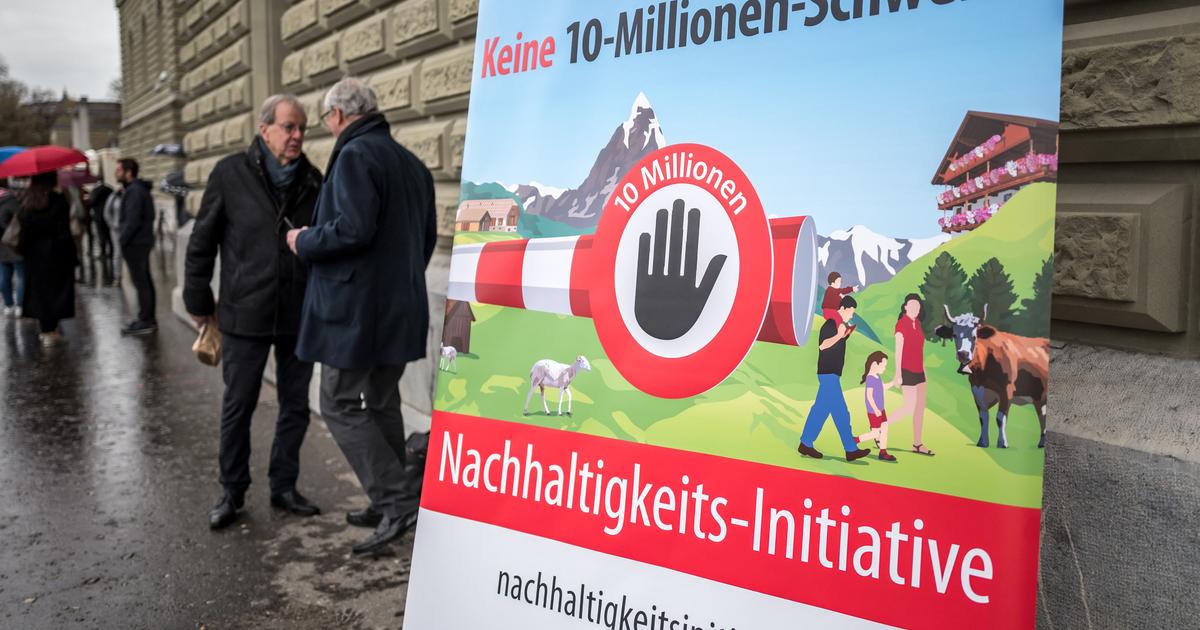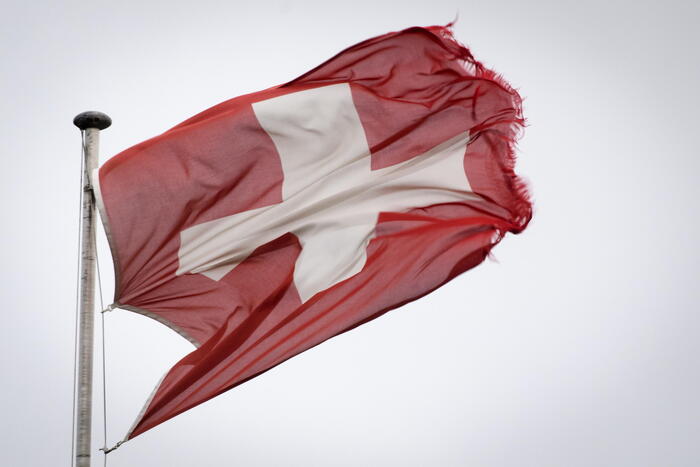Icon: enlarge
Almost normal in Germany, but still a reason for debate in Switzerland: fathers who look after their children
Photo: Sebastian Gollnow / DPA
The day a Swiss father becomes a special day.
Not just for the parents, but also for the new father's employer.
Because he has to grant his employee special leave on that day.
The day after the birth, however, everything is back to normal.
The child is in the world, the father at work.
At least that's what the law in Switzerland provides.
While mothers are entitled to statutory leave of 14 weeks, fathers have no special rights.
Some take their annual leave after giving birth, others don't.
In a European comparison, Switzerland is at the bottom of the list.
On Sunday, the Swiss will vote on a bill to change that.
At least a bit.
After years of tug-of-war, the Bern National Council has agreed on paternity leave of two weeks.
This was preceded by the collection of signatures by a committee that had called for four weeks of "papacy".
The aesthetics with which the committee advertised was hardly known in Switzerland until then.
On the homepage Papizeit.ch you can see many red hearts - and hundreds of men who carry their children on their shoulders or on their stomachs, cuddle with them, hike, and stroke cows.
The message behind it was clear: it is the men themselves who fight with their children for more time.
Anyone who wants to make a political difference in Switzerland almost always has to collect signatures.
The young fathers quickly managed to find supporters for their cause.
In August 2017, it was enough to bring the four weeks of "Papzeit" to a vote.
But the rejection in Bern was so huge that the initiators did not have high hopes of winning the vote.
There was also a counter-proposal: two weeks of paternity leave.
Further debates followed, and at the end there was a parliamentary compromise, as is typical for Switzerland: After the birth, fathers should be given ten days off, which they can use flexibly in the first six months of their child's life.
Switzerland has traditionally been cautious about social spending
In Germany, where parental leave of up to 14 months has been expanded in recent years, that sounds like very little.
In Bern, however, there was still fierce resistance.
The youth movement of the liberal FDP and the right-wing conservative SVP attacked the compromise proposal: Family is a private matter, two-week paternity leave, the cost of which is estimated at around 213 million euros, is too expensive.
The corona crisis gave the opponents an additional boost.
Especially in a tense economic situation you need "every penny" and cannot afford a "state watering can program" from which high earners and large corporations would also benefit.
Numerous business associations have also spoken out against paternity leave.
Switzerland has traditionally been reluctant to spend on social issues.
Those who demand more social benefits regularly fail at the ballot box.
A prominent example comes from the spring of 2012: At that time, the unions fought for an increase in the statutory minimum vacation time from four to six weeks a year - and lost a lot.
"Society is much further ahead, politics is lagging behind"
Daniel Graf, communications strategist
The mood is different when it comes to paternity leave.
In surveys, a clear majority of the citizens are in favor of the reduced "paper time";
A GfS survey published on Wednesday shows an agreement of 61 percent of those questioned.
The campaign team of the original popular initiative from 2017 also expects a clear victory.
The communications strategist Daniel Graf, who at the time collected signatures and launched the fathers' photo campaign, believes there is "a classic political failure".
The parties did not realize that the mood in the population had changed.
Graf is convinced that he is reading the signs of the times correctly: "These social issues have a very rapid dynamic. It's similar to marriage for everyone. Society is much further ahead, politics lagging behind."
The next goal: parental leave that should strengthen both sexes
Graf sends the cell phone number of a colleague, Che Wagner.
He too is a political strategist, experienced with popular initiatives, signatures and referendums.
The Basel resident is already working on a further initiative - parental leave that should strengthen both genders.
Wagner envisions 32 weeks of parental leave, evenly distributed between mothers and fathers.
"At its core, we are concerned with equality. We want to ensure that women and men have equal conditions on the labor market."
Switzerland, which only introduced the right to vote for women in 1971, is way behind when it comes to equality.
"This is also due to the lack of commitment on the part of the men," says Wagner.
He believes paternity leave could serve as a "stepping stone" to quickly getting more legislation off the ground.
After the vote on Sunday, Wagner wants to hold talks with potential supporters.
However, these advanced plans provide a good argument for all those who campaign for a No on Sunday.
The Swiss traditionally vote conservatively.
Those who reveal that far-reaching changes to the system are at stake often have bad cards.
Icon: The mirror






